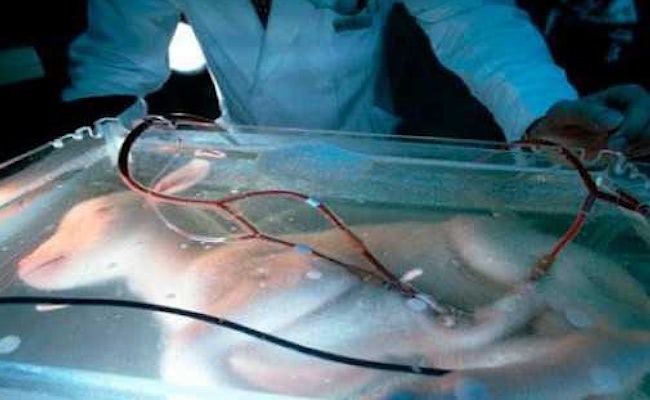In 1996, professor Yoshinori Kuwabara at Juntendo University in Tokyo developed a system called EUFI, extrauterine fetal incubation. A premature goat fetus was the experiment subject. In EUFI, the researchers take goat fetuses, thread catheters through the large vessels in the umbilical cord and supply the fetuses with oxygenated blood while suspending them in incubators that contain artificial amniotic fluid heated to body temperature. This system kept the goat alive for three weeks in the lab, until circulation failure and other technical difficulties emerged.
Being the first in the world to experiment the artificial womb, the creator of this technology wrote in his paper: "It goes without saying that the ideal situation for the immature fetus is growth within the normal environment of the maternal organism". His interest in developing such machines comes from his job as chairman of the Department of Obstetrics and Gynecology and from yeas of research on the artificial placenta to save premature infants' lives. Upon finishing this experiment, Kuwabara predicted that ''it should be possible to extend the length" and ultimately "this can be applied to human beings".
Even though the experiment itself was not successful in terms of fully incubating the goat fetus till maturity, it was a success in creating awareness on this subject worldwide. In 1996, multiple influential news agencies published headlines such as The Artificial Womb Is Born, featuring long analysis on the event. After 20 years now, we are still on the way of exploring and developing the artificial womb.
This article is part of the Artificial Womb research project by NNN. The goal of this project is to develop thought-provoking scenarios that facilitate a much-needed discussion about the way technology radically alters our attitude towards reproduction, gender, relationships and love in the 21st century. We highly value your feedback or input, contributions can be sent to womb@nextnature.net.

Share your thoughts and join the technology debate!
Be the first to comment